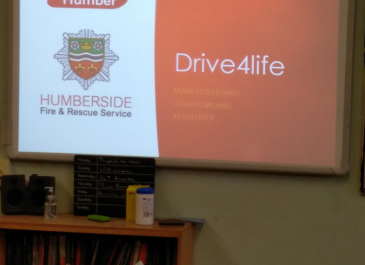Music
Music A Level
Why Music - What Can I Do With It?
The A Level music course is designed to provide students with an opportunity to experience the key disciplines of performance, composition, and analysis. This course is suitable for both students wanting to prepare for a higher education course in music, as well as students who wish to study music as an additional area of interest.
What Entry Requirements Do I Need?
BTEC/GCSE music at Grade 6 or above, or equivalent potential. A general interest in music in terms of performing, composing, listening and analysing. The ability to play an instrument to Grade 5 or above, for the performing aspects of the course. At least Grade 5 theory is also recommended.
What Will I Learn On This Course?
The A Level course covers music history and theory through studying a selection of set works, and students will learn about performing and composition through a coursework portfolio.
The areas of study for next year include:
1. Instrumental music of Haydn, Mozart and Beethoven
2. Popular song: Blues, jazz, swing and big band
3. Instrumental jazz from 1910 to the present day
4. Religious music of the Baroque Period
5. Programme music 1820-1910
6. Innovations in music from 1900 to the present day
This qualification requires learners to develop an in-depth understanding of:
musical elements and their interdependence
musical contexts
musical language
which will be assessed across the whole course. Students will be expected to demonstrate this in their written exam and apply these concepts, where appropriate, to their own work when performing and composing.
How Will I Be Assessed?
The A Level course is divided into three sections:
Performing (25% or 35%)
Composing (25% or 35%)
Listening and Appraising (40%)
Component | Content Overview |
Performing A (25%) | Recital (6-9 minutes) A video recorded recital Learners will make use of musical elements, techniques and resources to interpret and communicate musical ideas with technical and expressive control and an understanding of style and context This will be achieved through playing or singing solo or in an ensemble, improvising, or realising music through music technology. |
Composing A (35%) | Composition of at least three separate pieces of music One to a brief set by OCR One to a brief written by the learner A specialist study in composition techniques Combined duration at least 8 minutes. |
Performing B (35%) | Recital (10-12 Minutes) A video recorded recital Learners will make use of musical elements, techniques and resources to interpret and communicate musical ideas with technical and expressive control and an understanding of style and context This will be achieved through playing or singing solo or in an ensemble, improvising, or realising music through music technology. |
Composing B (25%) | Composition of at least two separate pieces of music One to a brief set by OCR One to a brief written by the learner Combined duration at least 4 minutes. |
Listening and Appraising | Written exam responding to extracts on a CD and contextual study of prescribed works and Areas of Study Aural recognition and context Unheard/unfamiliar music Analysing and evaluating prescribed music Reflecting on music written for a purpose. |
Peripatetic Music Lessons
This is an opportunity to continue or even begin instrumental lessons. A wide variety of lessons are offered through the North Lincolnshire Music Support staff and private teachers in the following areas are available to teach.
Upper Strings Lower Strings Woodwind Brass
Percussion Voice Keyboard Guitar
There are also plenty of opportunities to take part in extra-curricular activities e.g. concert band, samba band, choir, Taiko drums, jazz band and string group to name but a few. The Sixth Form are encouraged to take an active part in lessons with key stage 3 and 4 students in order to pass on and develop their expertise with younger students as we feel this is beneficial to their learning experience and helps them to understand the different approaches to their subject area.
The Department is always open to new ideas and wishes to encourage music for pleasure as well as the demands of an examination syllabus. It should always be remembered that all extra-curricular music activities and work within the music department provides invaluable character reference material when completing UCAS forms for entry into Further Education.

